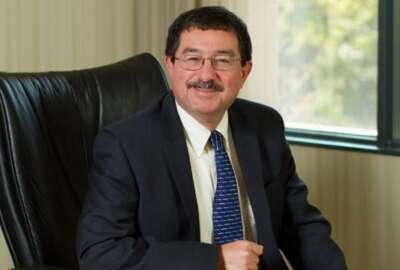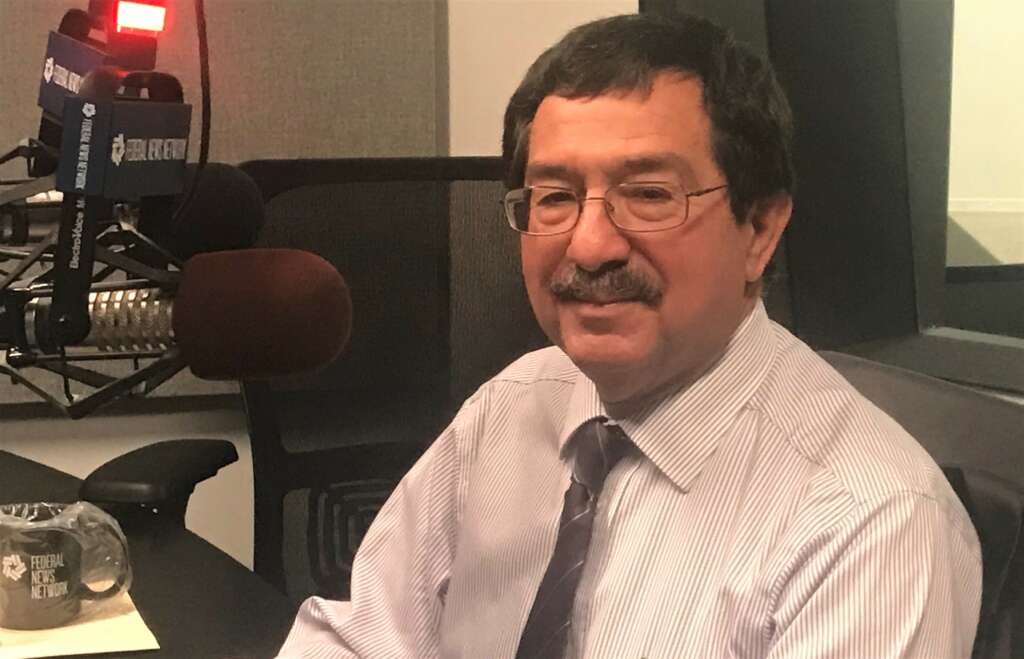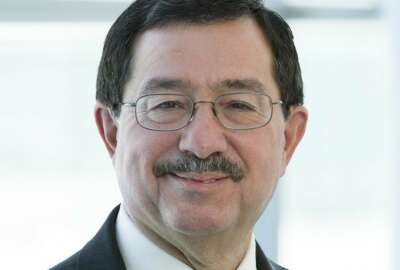
2 trends driving vendor, agency relationships
Tom Romeo, the general manager for the U.S. federal services segment for Maximus, said agencies have stiffened up the rules to get through the security clearanc...
Best listening experience is on Chrome, Firefox or Safari. Subscribe to Federal Drive’s daily audio interviews on Apple Podcasts or PodcastOne.
Views from the Corner Office is a show designed to talk to the private sector leaders that influence and impact the federal market. The goal of this monthly discussion is for federal executives, lawmakers and other industry experts to gain insights and a better understanding into the trends, the challenges and the evaluation of the technology, acquisition and leadership in the federal market by the executives who lead the federal practices of government contractors.
After two years, Views from the Corner Office will go on hiatus. It has been a great experience to get to know so many executives from large and small businesses who are helping shape the federal market and giving agencies the products and services they need to meet their missions. My thanks to all the industry folks who took the time to meet with me and answer my questions.
For the last show, Tom Romeo, the general manager for the U.S. federal services segment for Maximus, sat down with executive editor Jason Miller at Federal News Network’s studios in Chevy Chase, Maryland.

Here are some excerpts from that discussion.
State of the federal market
JM: Is it a good time to be a federal contractor?
TR: I think it’s a great time to be a federal contractor. The government still relies heavily on contractors to partner with them to develop and deliver very important missions. And the people in the government that are working those programs are phenomenal talents.
There’s more of a willingness to partner and less of a kind of a rules driven culture that says, ‘This is what the contract says. And that’s the only way we can work.’ And what I found is that if you can establish that relationship as a partner with the government, that the flexibility that you both provide to get to the mission are very rewarding. And I see more of that today than I’ve ever seen in the past.
JM: Why makes the relationship good or bad?
TR: What I see is when the program gets separated from the contracting office, that frustration gets a lot higher. Because once you’re in there and doing the work, if you’re talking to just the contracting office, a lot of times they don’t understand the program or the needs of the program, and the inflexibility to say, ‘Well, what does the contract say?’ isn’t the right approach. And a lot of times what I tell customers is, look, we’re here to serve you to help you get the best outcome but there’s a contract. So if you want to change the way that we’re going after this, then change the contract and we can all get done what you need to get done. Without the program people in the discussion that becomes a very difficult conversation.
Two trends to consider
JM: What are some of the big trends you’re seeing across the federal market or when it comes to whether for industry or just contracting in general?
TR: I see some business trends, but I see some contracting trends as well.
We will talk about the contracting trends first. There are more tech challenges now, and I like that approach. It basically eliminates the large request for proposals written response and takes it down to show us what you can do in a development perspective. And the requirements that we’ve had is, ‘by the way, only bring the team that would work on project into the demonstration of what you’ve developed.’ I think that gives the agency two things: One, the innovation that they’re looking for and the creativity; Two, the confidence level that when they select the team, they’re going to get very experienced people.
JM: How do you find that balance because you just can’t have 40 people sitting on your bench waiting for a contract to win?
TR: That’s a great point. They try to facilitate or avoid those issues by naming key personnel on projects so that at least you have the leadership team that you know, has the experience and you’ve met. The tech challenges are usually smaller teams of programmers so it’s a lot easier to bring in a team of 5 or 10 that you could dedicate to the project.
JM: What are you seeing around from the business market and being a contractor in the federal sector?
TR: There are three trends that I see really starting to become very prevalent in the government. One is a focus on citizen experience. And there’s a lot more attention being paid at the federal level, a lot of agencies have appointed citizen experience officers, and the idea is really to look at the whole experience, not just the website or the call center, but all of the touch point from the day I have to fill out an application for a benefit all the way through using those benefits. I think that’s a great trend, one that tries to address citizen expectations, because they’re used to a different experience with commercial companies.
The second one is using an as-a-service model to buy. There was a big initiative to go cloud first and the government, and it took quite a while for the agencies to catch on. But they have. So we’re past that. I think that drove a change in thinking about how to buy things in general. The idea that I could buy it infrastructure support-as-a-service, instead of supplying it for myself, seems to be really on the up ramp now. And I think that that’s a great trend. Then the third one is security, security, security, which obviously is just front and center in federal on every agency and every program.
Security clearances challenges live on
JM: Tell us what you’re doing to secure and how are you protecting against things like the insider threat.
TR: The requirements have gone up substantially. So we do a lot of work for the government on their behalf and we handle a lot of personal identifiable information (PII) and medical data as well. The requirements is we self-report any incidents, and that’s a process and a discipline that you really need to be if you’re going to be part of a federal provisioning, our networks have to be locked down. We can’t allow any exposure to their information through our network. It takes a chief information security officer on our side to ensure that we have the proper monitoring equipment in place. As a side topic, the security clearance and the backlog and clearing secured resources has become a real challenge in delivering government needs because you can’t get the personnel cleared through the security process.
JM: The White House and the Office of Management and Budget says the backlog is going down. Are you seeing any change in how long it takes to get employees cleared?
TR: Not a lot. I think they it’s interesting because what I have seen in several agencies is that they’ve actually stiffened up the rules for what it’s going to take to get through the security clearance process, which has also slowed down the process. So I think there’s been a mandate for the agencies to take more of a role in prescreening before the work gets to what was OPM and now is the DoD, but I think the backlog is still there. And it’s very substantial still.
I love a good adventure
JM: Tell me something about yourself outside of work.
TR: I love to travel and I love a good adventure. I grew up in upstate New York and I met my wife there at college. When we graduated, we said we should move to a city. And we just said, ‘Well, what city would be good?’ And we said, ‘well, Washington D.C. sounds like an interesting city.’ Neither of us had ever been here before. She had a nursing degree so we knew she could get a job. We just kind of said, ‘Okay, that’s where we’re going.’ And we moved down here, and for the first four or five years, we thought, well, this will be fun for a little while, and then after that, it becomes home. I do love an adventure and that was one.
JM: What kind of degree did you have?
TR: Accounting.
JM: How did you fall into government contracting? How do you become the general manager of a major government contractor with a good old accounting degree?
TR: I came down here worked as an auditor for an insurance company and then got a master’s degree and joined IBM and had a worldwide job. At some point, I realized that I was away from home way too much, and told them that I wanted to shift over to the federal government. And that was a great career move. So that got me back, staying in the Washington area.
Copyright © 2024 Federal News Network. All rights reserved. This website is not intended for users located within the European Economic Area.
Jason Miller is executive editor of Federal News Network and directs news coverage on the people, policy and programs of the federal government.
Follow @jmillerWFED





